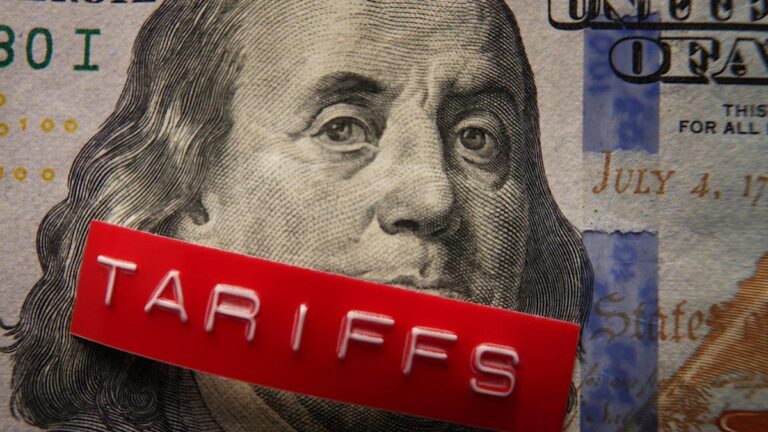Throughout 2025, there has been a consistently looming thundercloud hovering over America’s economy: President Donald Trump’s controversial tariff policy, and the potential financial fallout those tariffs could bring.
Ever since Trump declared April 2, 2025 to be “Liberation Day” via his implementation of tariffs upon nearly all countries importing goods to the United States, hesitation, anxiety and even panic have gripped the world’s stock exchanges.
Find Out: I Asked ChatGPT What the Point of Trump’s Tariffs Are: Here’s What It Said
Read Next: Here’s the Minimum Salary Required To Be Considered Upper Class in 2025
Tariffs engender fear primarily for two reasons.
First, when a tariff — or, essentially, a tax — is placed on a good being sent to the United States from an international trade partner, that partner typically increases the price of that good to offset the tax. Then, the American retailer or business that purchased the good also increases their price of the item, meaning the tariff cost ultimately funnels down to the American consumer, thereby increasing the price of everyday items at a time when things like inflation rates and trips to the grocery store are already perceived as too costly.
Second, America’s trade partners may also unleash reciprocal tariffs upon American goods, thus taxing American businesses in a punitive measure that costs those American businesses money.
In response those potential consequences, in the days following Trump’s “Liberation Day” announcement the S&P 500 alone lost $5.83 trillion in market value, per the University of Michigan — the most devastating four-day period for the index since its launch in the 1957.
So, are tariffs always such a threat to the stock market — or is that a financial myth?
Discover More: Mark Cuban: Trump’s Tariffs Will Affect This Class of People the Most
Some financial experts believe that while tariffs can indeed cause economic panic and market disruption in the short term, those negatives can be temporary and outweighed by a tariff’s positive impact.
Julia Khandoshko, CEO of the European investment firm Mind Money, explained how tariffs can be beneficial for markets on a long enough timeline.
“Tariffs induce more panic than is warranted and the response follows a familiar pattern: One headline hits the wires, stocks wobble and traders behave as if the damage is both permanent and instant,” she told GOBankingRates. “The settling-in period is what is frequently overlooked. This is the messy middle: Costs rise, margins compress and earnings appear weaker for a time. But that is rarely the end. As firms adjust, they rebuild supply chains, increase capacity and take on additional domestic demand. When those shifts happen, the [market] numbers look different. That’s generally when profitability rebounds, and valuations follow.”
Read More: Do Tariffs Always Hurt the Stock Market? 3 Experts Take On This Economic



